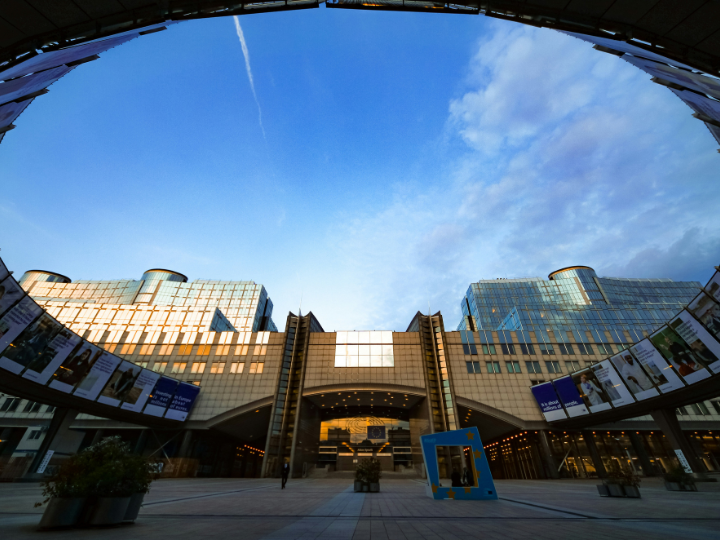by Sofia Sanchez Manzanaro
Hundreds of civil society organisations decried the recent reversal of EU sustainability policies for the bloc’s agrifood sector in an open letter published on 13 May.
The letter is endorsed by 140 regional, national, and international NGOs, including Greenpeace, BirdLife, Friends of the Earth, Oxfam, WWF, ClientEarth, the Finnish Association for Nature Conservation, and GOB Mallorca.
“Our society’s relationship with the nature that sustains it is fundamentally broken,” reads the letter.
“Despite the growing evidence of looming ecological collapse (…) European governments and EU politicians are blocking new measures to protect nature and tearing up ones already in place,” it continues.
The NGOs strongly criticise the relaxation of environmental conditions required for farmers to receive subsidies from the Common Agricultural Policy (CAP), condemning it as “an opportunistic attempt” by politicians to gain support ahead of the upcoming European Parliament elections in June.
These changes to the 2023-2027 CAP recently received the green light from Members of the European Parliament (MEPs) during the last plenary session of the term in April.
“We are horrified that so many politicians across Europe are threatening the basis of life on this planet to provide false solutions to farmers’ hardships,” they wrote, underscoring that no action has been taken to address complaints of unfair trade practices and cheaper agricultural imports from non-EU countries.
“The European Commission wants to scrap basic environmental standards for farms to appease industry lobbyists, and agriculture ministers are threatening the EU’s new rules to fight global deforestation,” they added.
Von der Leyen’s “great backtracking”
The criticism extends beyond the recent rollback of CAP environmental measures to encompass a broader trend of abandoning ambitious green plans for the agricultural and food sectors set out earlier in the current Commission’s mandate.
“In recent months, Ursula von der Leyen’s European Commission has loosened pollution rules for industrial farms, dropped plans for sustainable food production, abandoned targets to reduce pesticides and shelved efforts to ensure a resilient water supply,” reads the text.
In November, before the farmers’ protests, EU lawmakers had already decided to continue exempting cattle farms from the bloc’s industrial emissions rules, with minimal changes for the pig and poultry sectors.
Agricultural concerns also played a pivotal role in diluting some of the provisions of the Nature Restoration Law concerning the farming sector during negotiations between member states and MEPs.
Even after a hard-fought agreement was reached between the Parliament and the Council, the text has not garnered enough support from EU countries and is yet to be officially approved.
Moreover, the Commission officially withdrew a legislative proposal to reduce pesticide use and risk by 50% by the end of the decade, after the text lost parliamentary support during a crucial vote in November.
Recent weeks have also seen several member states at the Council intensify efforts to postpone the implementation of already endorsed anti-deforestation regulation, slated to take effect in January 2025.
While the rules were designed to halt imports of deforestation-linked products such as cocoa and coffee, the legislation will also extend to EU-sourced goods, imposing additional bureaucratic requirements on agricultural producers and businesses.
Forgotten texts
In autumn 2023, it became evident that the Commission was abandoning plans to introduce legislation to define a EU and, that was the hope, global standard for sustainable food.
The legislative framework for sustainable food systems was once hailed as a “flagship” element of the Farm to Fork Strategy, and planned to be tabled by the end of 2023.
Its goal was to accelerate the transition to a sustainable food system, ensure policy coherence at the EU and national level, and “mainstream sustainability” in all food-related policies.
Among the shelved initiatives also lies a proposed strategy on water resilience.
Initially scheduled for release in 2024, the non-legislative strategy aimed to ensure “access to water for citizens, nature and the economy” while tackling catastrophic flooding and water shortages that have taken a toll on the agricultural sector in recent times.
Although not explicitly referenced in the letter, the Commission also abandoned a highly anticipated comprehensive revamp of the EU’s animal welfare legislation.
Among the components of this package, only the regulation on animal transport has seen the light of day during the current mandate, but negotiations on the file are still in their early phases.
*first published in: Euractiv.com




 By: N. Peter Kramer
By: N. Peter Kramer

